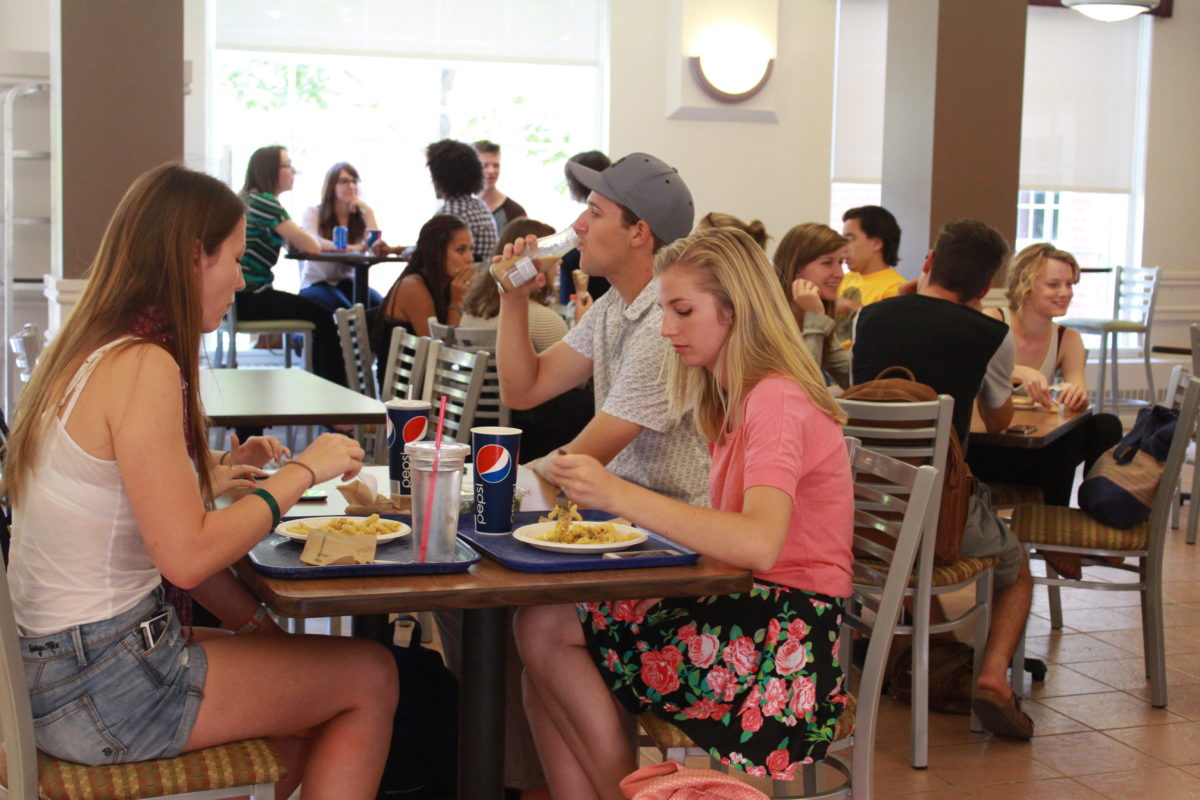 After students, faculty and staff made it clear they didn’t want the all-you-care-to-eat meal plan rammed down their throats, the administration is promising consultation.
After students, faculty and staff made it clear they didn’t want the all-you-care-to-eat meal plan rammed down their throats, the administration is promising consultation.
University spokesperson Jeffrey Carleton said an advisory group has been formed consisting of both vice-presidents, student and faculty representatives.
The group – which Carleton said is planning its first meeting – will search for ways to mitigate the impact of the new model on common space and suggest alternatives for students without meal plans.
“You have to look at how many students live in residence or off-campus, what space they need and how much is available as study space, communal or social space,” Carleton said. “In this case, it’s clear we didn’t consider that to the extent we should have.”
While the all-you-care-to-eat model, in use in many Atlantic Canadian universities, offers many advantages to students with meal plans, faculty and off-campus students were outraged at how it would limit common space and menu options for them.
“With all-you-care-to-eat, you need your meal card to access the dining space or pay a small fee per meal,” said Carleton.
Second-year student Shania Maguire started an online petition late last school year after learning the possibility of the changes and hearing other students’ concerns.
“When I heard many people were concerned, I knew a petition would get lots of signatures,” she said. “The cafeteria is where students like to hang out. Many like the way our cafeteria is run now.”
The plan had been part of an overhaul of cafeterias in George Martin Hall and on Forest Hill that includes a new colour scheme and seating that greeted students this term. The cosmetic adjustments and seating upgrades at the George Martin Hall and Forest Hill cafeterias are part of a $915,000 revitalization being undertaken by Aramark, the firm which oversees STU’s food service.
“That’s a significant investment by Aramark into St. Thomas,” Carleton said.
The all-you-care-to-eat model is designed to minimize the burden of budgeting additional meal plan funds, thus lowering the risk of students finding themselves without enough money for meals late in the year.
“There will be significant benefits with all you care to eat,” said Carleton. “It’s not a coincidence most other universities in Atlantic Canada have adopted that food service approach.”
The proposed plan would offer a limited or infinite number of meals per week, along with STU dollars which could be spent at the Subway and Tim Hortons locations on campus.
Under the new model, food would be served using reusable plates, glasses and cups, and more efficient portion management would result in less food waste and less garbage in landfill sites.
“There are new menus with more choice and offer scratch cooking, enhanced vegetarian and vegan options and locally sourced foods,” Carleton said. “There are many benefits to all you care to eat that will improve the student experience on campus and we’re excited for students to see that.”
Maguire agreed opponents of the new model could voice their displeasure through other means and she said she’s pleased the university seems to want to ease the transition to the new model next year.
